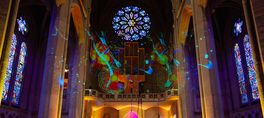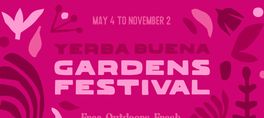Tue June 30, 2015
Please Join SF Bay ACS for Cara Gallagher's "Estimating Energy Sequestration and Outflow by the Harbor Porpoise"
SEE EVENT DETAILS
at Saylor's Restaurant and Bar
(see times)
Harbor porpoises (Phocoena phocoena) were known to frequent San Francisco Bay (SF Bay) historically, but WWII activities in the 1940s caused them to retreat to coastal waters outside of the Golden Gate. Harbor porpoises remained absent from SF Bay for over 65 years, until 2008, when they began their return. They are currently visiting SF Bay on a daily basis and in increasing numbers.
Golden Gate Cetacean Research has monitored the reintroduction of harbor porpoises into SF Bay and, using photo identification, the population has been estimated at around 650 individuals. Since these porpoises are still spending the majority of their lives outside of the Bay, and are more likely to defecate and expire in coastal waters, the majority of the energy obtained within SF Bay is transported to coastal waters.
Cara is investigating the potential amount of energy removed by these porpoises from SF Bay waters and transferred to the coast on a daily basis. As returning predators in SF Bay, it is important to place porpoises back into the context of the SF Bay food web.
This will provide information on the top-down effects on SF Bay, information that is currently missing from the complete picture of energy flow and nutrient cycling.
Biography:
Cara Gallagher is a Master’s candidate at San Francisco State University’s Romberg Tiburon Center for Environmental Studies. She is currently working with Golden Gate Cetacean Research on the San Francisco Bay harbor porpoise project.
Cara has had a love for the ocean and marine mammals since she was young and has always pursued a path geared towards ocean conservation. She completed her Bachelor’s degree in 2013 at California State University East Bay where her undergraduate research focused on sea slug physiology.
This research led her to work at the Friday Harbor marine lab on San Juan Island for 3 summers, where she also conducted a harbor porpoise project. She has completed numerous volunteer projects and internships, such as an Oceans Research internship in South Africa where she gained skills in studying marine predators, such as great white sharks, humpback dolphins and right whales.
During her undergraduate degree, Cara served as President of the Student Coalition of the American Cetacean Society's SF Bay Chapter. Through her work with the San Francisco Bay American Cetacean Society chapter, Cara was afforded the opportunity to give numerous presentations on marine conservation issues and cetacean physiology/evolution, as well as organizing events such as beach cleanups, wetland restorations, and tabling on campus.
Cara sees the importance in the symbiotic relationship between research and outreach. She plans on continuing her education after her Master’s by pursuing a doctorate degree in cetacean energetic research, in particular the energetic costs associated with behaviors that are anthropogenically induced. After receiving her doctorate, Cara would like to remain in academia in order to continue her research as well as teach future generations the importance of marine conservation.
show less
Golden Gate Cetacean Research has monitored the reintroduction of harbor porpoises into SF Bay and, using photo identification, the population has been estimated at around 650 individuals. Since these porpoises are still spending the majority of their lives outside of the Bay, and are more likely to defecate and expire in coastal waters, the majority of the energy obtained within SF Bay is transported to coastal waters.
Cara is investigating the potential amount of energy removed by these porpoises from SF Bay waters and transferred to the coast on a daily basis. As returning predators in SF Bay, it is important to place porpoises back into the context of the SF Bay food web.
This will provide information on the top-down effects on SF Bay, information that is currently missing from the complete picture of energy flow and nutrient cycling.
Biography:
Cara Gallagher is a Master’s candidate at San Francisco State University’s Romberg Tiburon Center for Environmental Studies. She is currently working with Golden Gate Cetacean Research on the San Francisco Bay harbor porpoise project.
Cara has had a love for the ocean and marine mammals since she was young and has always pursued a path geared towards ocean conservation. She completed her Bachelor’s degree in 2013 at California State University East Bay where her undergraduate research focused on sea slug physiology.
This research led her to work at the Friday Harbor marine lab on San Juan Island for 3 summers, where she also conducted a harbor porpoise project. She has completed numerous volunteer projects and internships, such as an Oceans Research internship in South Africa where she gained skills in studying marine predators, such as great white sharks, humpback dolphins and right whales.
During her undergraduate degree, Cara served as President of the Student Coalition of the American Cetacean Society's SF Bay Chapter. Through her work with the San Francisco Bay American Cetacean Society chapter, Cara was afforded the opportunity to give numerous presentations on marine conservation issues and cetacean physiology/evolution, as well as organizing events such as beach cleanups, wetland restorations, and tabling on campus.
Cara sees the importance in the symbiotic relationship between research and outreach. She plans on continuing her education after her Master’s by pursuing a doctorate degree in cetacean energetic research, in particular the energetic costs associated with behaviors that are anthropogenically induced. After receiving her doctorate, Cara would like to remain in academia in order to continue her research as well as teach future generations the importance of marine conservation.
Harbor porpoises (Phocoena phocoena) were known to frequent San Francisco Bay (SF Bay) historically, but WWII activities in the 1940s caused them to retreat to coastal waters outside of the Golden Gate. Harbor porpoises remained absent from SF Bay for over 65 years, until 2008, when they began their return. They are currently visiting SF Bay on a daily basis and in increasing numbers.
Golden Gate Cetacean Research has monitored the reintroduction of harbor porpoises into SF Bay and, using photo identification, the population has been estimated at around 650 individuals. Since these porpoises are still spending the majority of their lives outside of the Bay, and are more likely to defecate and expire in coastal waters, the majority of the energy obtained within SF Bay is transported to coastal waters.
Cara is investigating the potential amount of energy removed by these porpoises from SF Bay waters and transferred to the coast on a daily basis. As returning predators in SF Bay, it is important to place porpoises back into the context of the SF Bay food web.
This will provide information on the top-down effects on SF Bay, information that is currently missing from the complete picture of energy flow and nutrient cycling.
Biography:
Cara Gallagher is a Master’s candidate at San Francisco State University’s Romberg Tiburon Center for Environmental Studies. She is currently working with Golden Gate Cetacean Research on the San Francisco Bay harbor porpoise project.
Cara has had a love for the ocean and marine mammals since she was young and has always pursued a path geared towards ocean conservation. She completed her Bachelor’s degree in 2013 at California State University East Bay where her undergraduate research focused on sea slug physiology.
This research led her to work at the Friday Harbor marine lab on San Juan Island for 3 summers, where she also conducted a harbor porpoise project. She has completed numerous volunteer projects and internships, such as an Oceans Research internship in South Africa where she gained skills in studying marine predators, such as great white sharks, humpback dolphins and right whales.
During her undergraduate degree, Cara served as President of the Student Coalition of the American Cetacean Society's SF Bay Chapter. Through her work with the San Francisco Bay American Cetacean Society chapter, Cara was afforded the opportunity to give numerous presentations on marine conservation issues and cetacean physiology/evolution, as well as organizing events such as beach cleanups, wetland restorations, and tabling on campus.
Cara sees the importance in the symbiotic relationship between research and outreach. She plans on continuing her education after her Master’s by pursuing a doctorate degree in cetacean energetic research, in particular the energetic costs associated with behaviors that are anthropogenically induced. After receiving her doctorate, Cara would like to remain in academia in order to continue her research as well as teach future generations the importance of marine conservation.
read more
Golden Gate Cetacean Research has monitored the reintroduction of harbor porpoises into SF Bay and, using photo identification, the population has been estimated at around 650 individuals. Since these porpoises are still spending the majority of their lives outside of the Bay, and are more likely to defecate and expire in coastal waters, the majority of the energy obtained within SF Bay is transported to coastal waters.
Cara is investigating the potential amount of energy removed by these porpoises from SF Bay waters and transferred to the coast on a daily basis. As returning predators in SF Bay, it is important to place porpoises back into the context of the SF Bay food web.
This will provide information on the top-down effects on SF Bay, information that is currently missing from the complete picture of energy flow and nutrient cycling.
Biography:
Cara Gallagher is a Master’s candidate at San Francisco State University’s Romberg Tiburon Center for Environmental Studies. She is currently working with Golden Gate Cetacean Research on the San Francisco Bay harbor porpoise project.
Cara has had a love for the ocean and marine mammals since she was young and has always pursued a path geared towards ocean conservation. She completed her Bachelor’s degree in 2013 at California State University East Bay where her undergraduate research focused on sea slug physiology.
This research led her to work at the Friday Harbor marine lab on San Juan Island for 3 summers, where she also conducted a harbor porpoise project. She has completed numerous volunteer projects and internships, such as an Oceans Research internship in South Africa where she gained skills in studying marine predators, such as great white sharks, humpback dolphins and right whales.
During her undergraduate degree, Cara served as President of the Student Coalition of the American Cetacean Society's SF Bay Chapter. Through her work with the San Francisco Bay American Cetacean Society chapter, Cara was afforded the opportunity to give numerous presentations on marine conservation issues and cetacean physiology/evolution, as well as organizing events such as beach cleanups, wetland restorations, and tabling on campus.
Cara sees the importance in the symbiotic relationship between research and outreach. She plans on continuing her education after her Master’s by pursuing a doctorate degree in cetacean energetic research, in particular the energetic costs associated with behaviors that are anthropogenically induced. After receiving her doctorate, Cara would like to remain in academia in order to continue her research as well as teach future generations the importance of marine conservation.
show less
Date/Times:
Saylor's Restaurant and Bar
2009 Bridgeway, Sausalito, CA 94965
The Best Events
Every Week in Your Inbox
From Our Sponsors
UPCOMING EVENTS
Great suggestion! We'll be in touch.
Event reviewed successfully.








